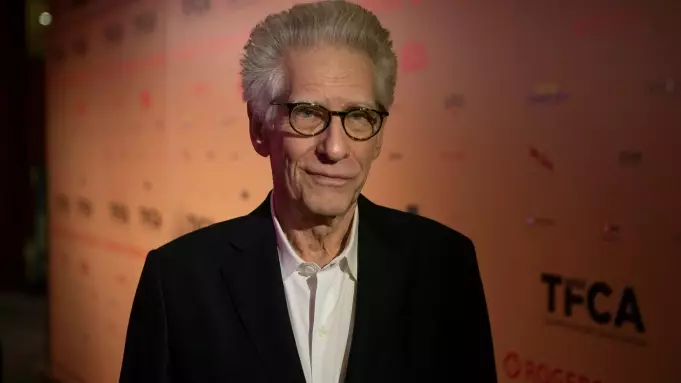The debate surrounding the film “The Brutalist,” notably spurred by director David Cronenberg’s defense, reflects a growing schism in the film industry about the use of artificial intelligence. While some see AI as an inevitable evolution in filmmaking, others perceive it as an unsettling harbinger of the very real dangers of losing human nuance in creativity. Cronenberg, speaking at the London Soundtrack Festival, suggested there may be an insidious agenda behind criticism aimed at the film. Is it paranoia, or is Cronenberg simply shedding light on a rooted conflict where power dynamics are played out?
Echoes of Old Hollywood
Cronenberg’s assertion that current disputes are reminiscent of shady tactics employed by figures like Harvey Weinstein raises alarm bells for audiences who still feel the reverberations of his notorious legacy in Hollywood. By invoking Weinstein, Cronenberg does not merely defend “The Brutalist”; he questions the moral fabric of the industry itself. Is there an orchestrated effort by competing talents to undermine those who may diverge from traditional filmmaking? This rejection of innovation offers a critique of a stagnant culture that fears the future more than embraces it.
The Double-Edged Sword of AI
The employment of AI in “The Brutalist” to refine performances has stirred a counter-narrative about the authenticity of artistry. While editor Dávid Jancsó claims that these tools merely enhance rather than alter performances, one can’t ignore the slippery slope AI represents. The debate isn’t just about “what’s possible,” but rather, “what’s permissible.” With past performances being manipulated by technology, where do we draw the line between enhancement and deceit? This dilemma speaks volumes about the risks the industry is willing to navigate when the allure of efficiency costs the true essence of storytelling.
Human Touch vs. Digital Interference
Despite the increasingly complex discussions on AI, one glaring oversight persists: the human element in filmmaking remains paramount. While Cronenberg and the film’s crew argue for innovation, we must consider that the act of creating is inherently human. Relying on technology to perfect dialects may seem efficient; however, it also risks devaluing the painstaking craft of actors and their coaches. What happened to the rawness of an unpolished performance? Such intricacies are often what set apart a mediocre piece of art from a truly resonant one.
Innovation or Sabotage?
The industry’s wariness toward AI is not an expression of anti-progress; instead, it represents a longing for the intangible alchemy that arises when human beings create in dialogue with one another. As Cronenberg pushes against boundaries, he must recognize that while the road to innovation is paved with good intentions, it also leads to a chasm where emotionally rich experiences could be sacrificed for technological polish.
In a world that increasingly looks to AI to simulate human artistry, we must be vigilant. The defenses mounted by Cronenberg and others in his camp remind us of a fundamental truth: Filmmaking should remain a shared human experience, fraught with love, mistakes, and the thrill of discovery—not merely a sterile assembly line of digital adjustments. The soul of film deserves better than that.


Leave a Reply